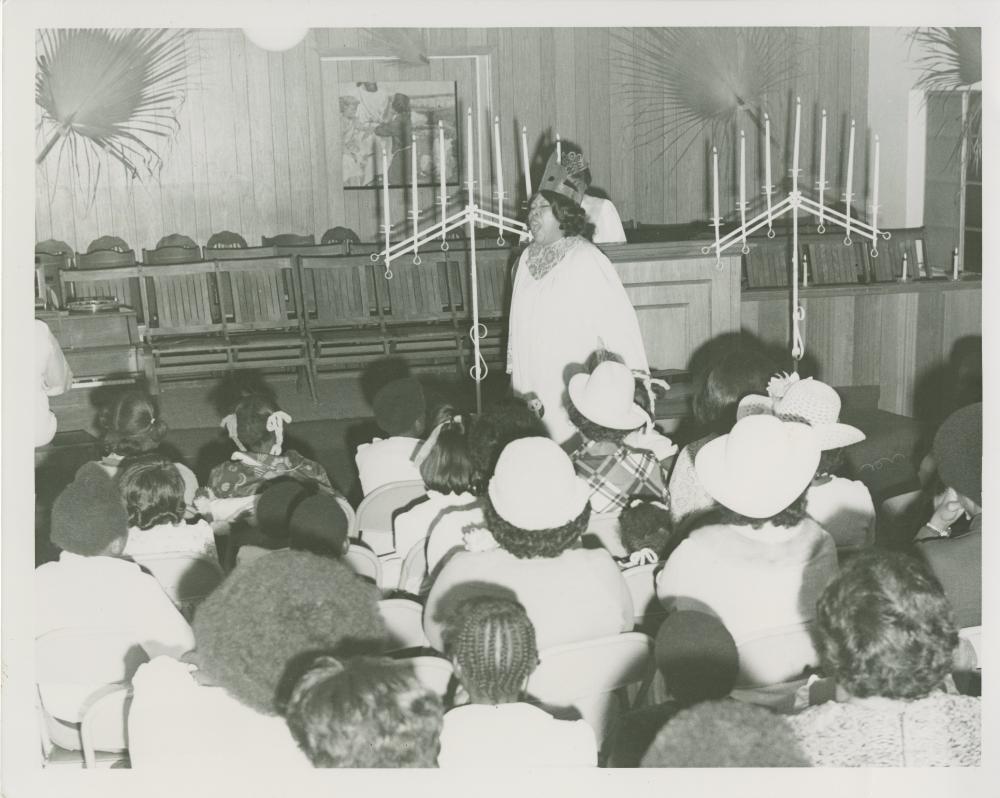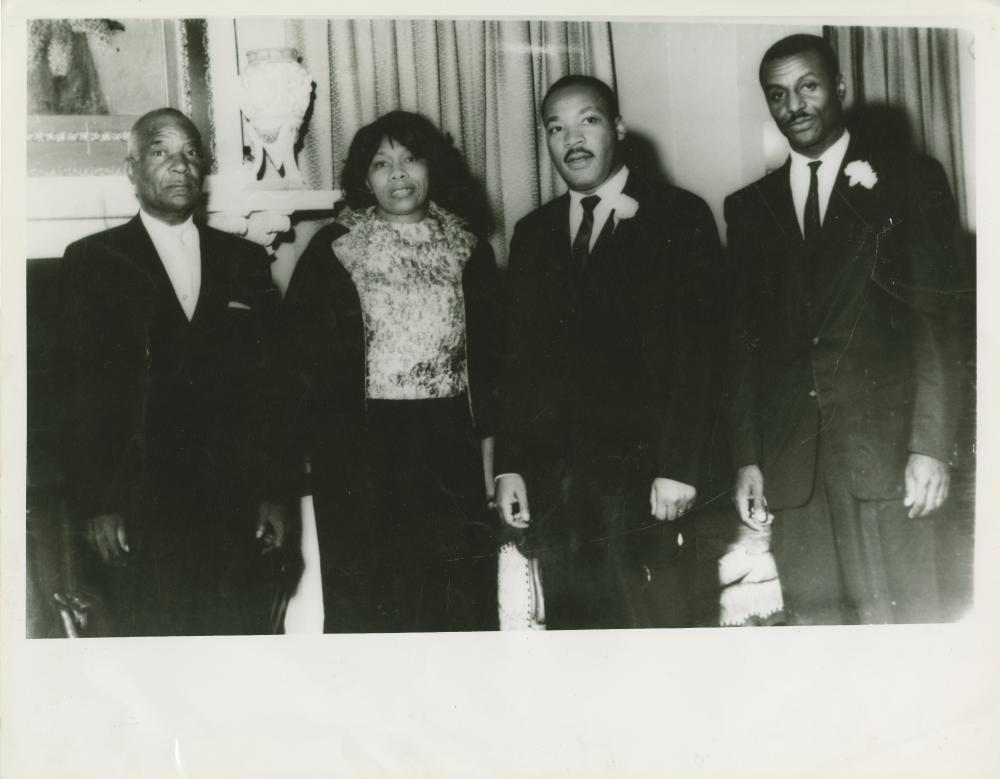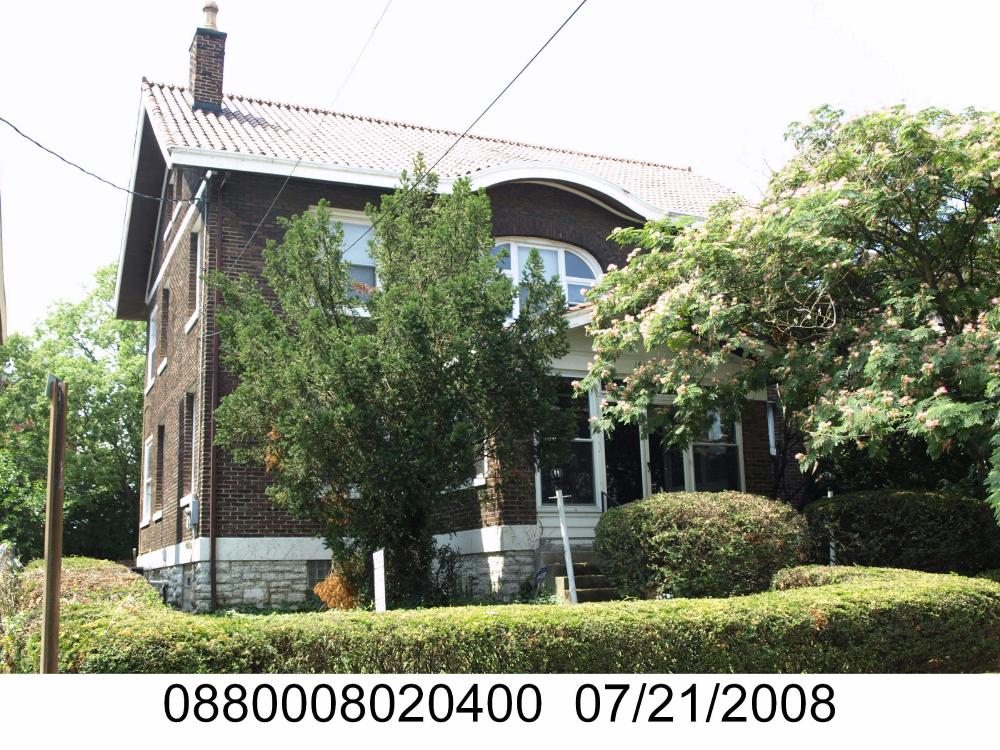Louise Shropshire’s Role in the Civil Rights Movement was Unacknowledged for Over Fifty Years.

Cincinnati musician and composer Louise Shropshire grew up in the West End and eventually moved to a beautiful home in Mount Auburn. It was here that she introduced Dr. Martin Luther King Jr. to her original song “If My Jesus Wills” which would become the basis for the rights anthem, “We Shall Overcome.” Though she had many addresses, none of her former homes survive today.
Louise Jarrett Shropshire was born in Coffee County Alabama in 1913. She was the middle child of seven born to James and Ollie Jarrett who had recently moved over the state line from Georgia in search of a better life. After a short time in Alabama, the search continued and the Jarrett family moved to Cincinnati in 1917, unknowingly becoming part of the great migration.
Like many low-income renters in Cincinnati’s crowded West End, the Jarretts moved around. The first lived at 755 Carlisle. In 1920 they lived at 827 West Fourth Street (now under the snarl of highway ramps for the Brent Spence Bridge), then 807 Kenyon. In 1928 they were at 1037 Cutter Street, and by 1930 the family had moved to 708 John Street. Unfortunately, none of these homes are left to commemorate Louise Shropshire’s early life in the West End. They, like the homes of many African American families, have been lost to urban renewal and other, often racist, redevelopment schemes.
Louise’s father James passed away in 1929 about the same time Louise met her husband bail bondsman Robert (Bob) Shropshire. The family visited Bob to help make bail for Louise’s oldest brother, legendary pianist, James “Pigmeat” Jarrett. Bob and Louise’s son Robert Jr. was born in 1931, and by 1935 the family, including Louise’s mother and brother Pablo were living at 308 Oliver Street.
Bob Shropshire’s business (which still exists today on Main Street near the Hamilton County Courthouse) provided the means to purchase a home at 141 Huntington Place in a small Black neighborhood behind Christ Hospital in 1946. When Bob passed away in 1967 Louise moved to California and eventually sold the house to her son in 1975. 141 Huntington Place remained in the family for sixty-six years until 2012 when Christ Hospital purchased it for hospital parking.
Bob’s business also put the family in contact with civil rights activists including Dr. Martin Luther King and Rev. Fred Shuttlesworth. As a bail bondsman, Bob’s role in civil rights was largely behind the scenes helping activists get out of jail, while Louise’s contribution, though long unacknowledged, was more public.
Louise Shropshire was a gifted musician and composer. She was deeply involved in the music ministry of Revelation Baptist Church (recently demolished for a parking lot), and later, Greater New Light Baptist Church. She formed numerous singing groups including in a gospel trio, The Humble Three, with her mother and sister Alice, the Shropshire singers, and the New Prospect Singers. At a meeting of the National Convention of Gospel Choirs and Choruses (NCGCC) in Cincinnati, she met Thomas Dorsey, “the father of Gospel music,” and began a life-long collaboration which included cowritten publications.
In 1954 Louise Shropshire received a copyright for an original song entitled “If My Jesus Wills” published in 1942. Today this song is widely accepted to be the origin of the Civil Rights anthem, “We Shall Overcome.”
In 1960 a copyright for “We Shall Overcome,” was granted to folk legend Pete Seeger. The application acknowledged that the song was derivative, but failed to acknowledge that it had been “derived” from Louise’s copyrighted song. A 2015 story in the Cincinnati Enquirer explained that FBI transcripts have revealed that Dr. Martin Luther King Jr. had asked Shropshire for permission to change her song from “I shall overcome” to “we shall overcome” during a stay with the Shropshires on Huntington Place while in town honoring Revelation Baptist Church’s pastor, Rev. Fred Shuttlesworth.
In 2018 a New York federal district court coordinated a settlement to put "We Shall Overcome" into the public domain. Today everyone can use the song for free. It can now be used in films and media free of charge and Louise Shropshire will now credited each time it is used.
In 2014 the Cincinnati Pops Orchestra played a blended version of “If My Jesus Wills” and “We Shall Overcome” in its American Roots performance. Pops conductor John Morris Russell called “If My Jesus Wills” the "most important piece of music ever composed in Cincinnati."
Images


